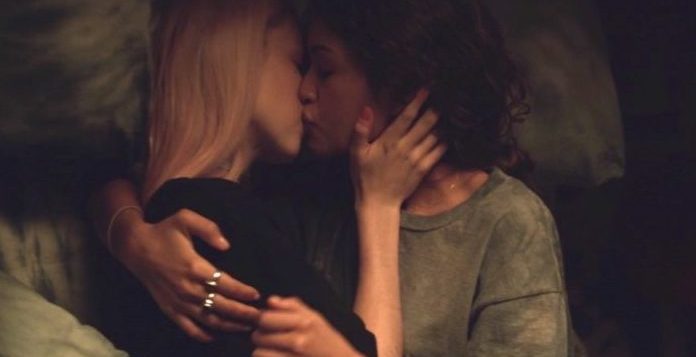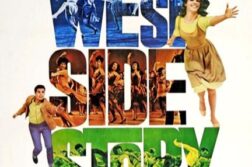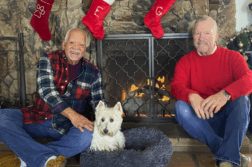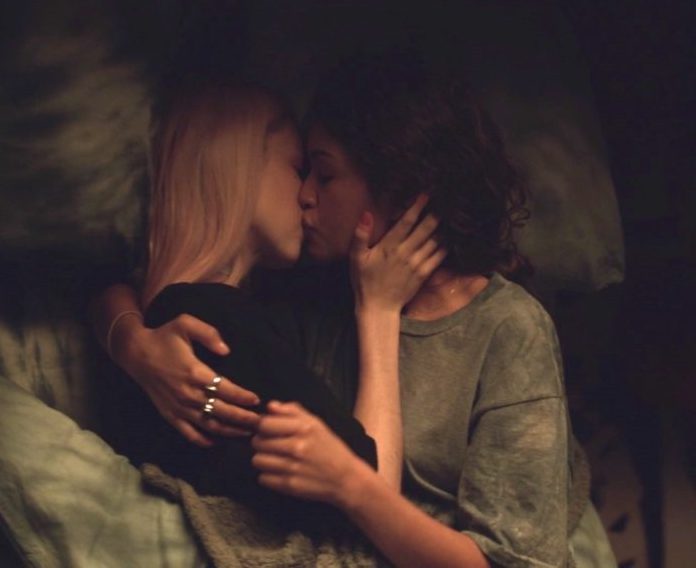
THE PANDEMIC has made me feel like I’m back in the closet. As someone who identifies as queer and bisexual—the latter being an identity often erased both inside and outside of the LGBT community—I fight every day to prove my queerness to myself. I often wonder how many relationships with queer people I could have had by now had I been conditioned differently. I don’t know how long it will take for me to finally daydream about marrying a woman. When I have had these fantasies, it was because I sought them out by reminding myself that marrying a woman is in fact a possibility. I have so much to unlearn and need support to keep waking up and doing that work every single day.
During the isolation, I’ve found this support in Facetime calls with my bisexual friends, where we talk about the bisexual agenda—often involving Harry Styles content or lists of women who we would risk it all for. I’ve found community in strangers across the world on TikTok—strangers younger than I who are openly bisexual and inspire me to be prouder, louder, queerer. I’ve found new outlets to express my queerness, doodling queer mermaid comics, developing my eye shadow skills, and even taking up roller skating—in hopes that some masked band of queer femme skaters in Venice will take me under their tattooed wings. Much of what I do to cope is alone.
In this year of solitude, I found liberation in Sam Levinson’s HBO show Euphoria, investing myself in the authentic queer characters and stories I see onscreen. Sometimes these depictions served as my only reminder of my own queerness. “I’m no longer interested in men—like philosophically, like what men want,” Hunter Schafer’s Jules explains in the latest release. Titled “Fuck Anyone Who’s Not a Sea Blob,” this interim episode was cowritten by Levinson and Schafer. The episode opens with Jules announcing to her new therapist that she wants to go off her hormones. When Jules said, “I’ve framed my entire womanhood around men,” I began to tear up.
Jules goes on: “How the fuck did I spend my entire life building this … my body, my personality and my soul, around what I think men desire?” Similar to my internalized homophobia, women’s bodies and minds have been conditioned in this way. In high school, I knew more about male pleasure and desire than I did of my own. A decade later, I too feel “like a fraud.” How could I know so little about this physical form I have occupied my whole life? Recent realizations have terrified me, stripping me of autonomy I may never have had.
Jules continues: “This whole time, I was trying to conquer femininity, and somewhere along the way, I feel like femininity conquered me.” Jules’ self-assurance, style, and gender expression have been a source of inspiration and substantiation for my queer composure since I first saw her onscreen in Season 1. But now, stripped down and raw, Jules offered me the strength to move through the emotions that lie beneath the exterior of my femininity—asking the question, who is all this for? Within the first five minutes of this episode, the gender identity crisis I have been going through during the pandemic was validated.
I have struggled with the idea of performing femininity and learning to express my masculinity. In the pandemic, I have no one to perform for except myself—for the first time, I’m exploring what I like. I’ve taken to wearing “men’s” boxer briefs around the house and pushing the boundaries of how I present myself, without internalized judgment.
With these changes and the increased visibility of nonconforming gender identities on social media, I’ve been obsessively considering my proximity to womanhood and constantly re-evaluating my pronouns. To the few friends I have told, I joke that I don’t have time for a gender identity crisis. I can’t help but wonder what my pronouns would be if I’d grown up seeing a trans, queer character onscreen expressing the very thoughts I’ve avoided my whole life. As with many moments in Euphoria, it was if the scene and the character’s struggles were taken from my own experiences.
Take the scene in Season 1 when Rue first kisses Jules and runs away apologizing, scared she has ruined everything between them by outing herself and her feelings. This was a fear I lived with throughout high school. In another episode, when Rue practices kissing on her best friend, Lexi—because it doesn’t “count”—I’m reminded of my first kiss. It was with a girl, but this experience wasn’t appraised as “real.” I hadn’t kissed anyone until I had a man’s rough tongue shoved down my throat.
In the latest episode, Jules explains how easy it is to talk to someone online, having exclusively used Grindr to meet sexual partners. Jules has a hard time talking, even her best friend Rue, about using these apps. This empowers me to remind my straight friends that the stigma associated with dating apps and meeting someone online—the idea that it is a “less real” or lesser form of dating—is rooted in homophobia. For a very long time, dating apps and online forums were the only safe option queer people had. In fact, dating apps are still the only way I can meet queer women in Los Angeles, because there is not a single lesbian bar in this city. We’re closer to flying cars than we are to having a bisexual bar or club here. No wonder I feel so alone.
I feel less alone when I see Jules count the number of times she had wanted to kiss Rue but didn’t, or when Jules explains that she froze the first time Rue kissed her because she had “never kissed a girl before; never even been that close to a girl before.” Rue and Jules are each other’s first queer loves. This visibility is rare in cinema, and its effect is visceral.
When I first came out, I vowed to my screenwriter self that I would make sure every protagonist I write is bisexual—not as a plot–motivating characteristic, but because I was exhausted from looking for myself onscreen. The recurring theme throughout every short film, pilot, feature, one act, and fairytale I write is the struggle to love oneself. Queer people—and all marginalized identities—have been taught for our whole lives to hate, erase, and invalidate ourselves. It’s no wonder so many of my protagonists end up in therapy.
“Fuck Anyone Who’s Not a Sea Blob” follows an all-too-familiar therapy session structure, opening with Jules’ therapist asking her why she is so self-critical. My therapist often tells me to be kinder to myself, but this is a gauntlet I’ve struggled with my entire life. I am beginning to think, when will it be enough? Maybe when I have unlearned the societally taught self-hatred that has burrowed beneath and within my queerness. Or perhaps when society stops preaching these lessons of hatred and tells us all that we are enough.
Some may disagree with my anger and impatience with the world. They might ask me to lead with kindness for others, and I would respond that kindness cannot dismantle the systems of oppression, only action. Besides, when I’m angry, I have no room to be fearful. I lived my life in such fear for 22years. I have a right to this anger.
I am angry it has taken 24 years of searching to see myself onscreen. I found myself in an exquisitely portrayed relationship between a masc-presenting, Black, bipolar, obsessive–compulsive addict and the white, suicidal, queer trans femme love of her life. I have not only found myself, but I have found out that I am not alone. As Jules expresses knowingly: how boring, how simple-minded and how unoriginal the world would be without us. Now that I know how good this feels, how euphoric representation can be, I will never stop fighting for the right that everyone has to this high.
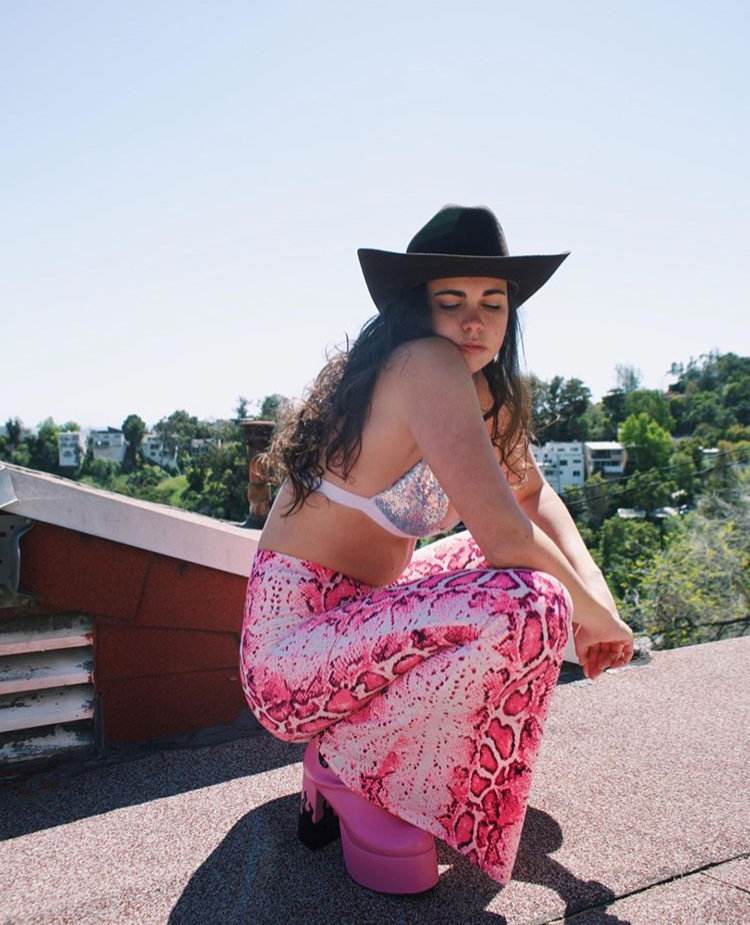
Elizabeth Burch-Hudson is a professional demon wrassler wrestler? based in LA. She/they/hot were born in California, and raised on tall tales in the midwest by “southern rejects”. Witty, queer, and mentally unstable (on a good day). Better on paper, better in premise, and better in bed.

